
Remington Pro vs Conair InfinitiPro: Titanium vs Ceramic
Which wins the battle for frizz-free speed—titanium’s lightning heat or ceramic’s gentle, long-lasting shine?
Believe it or not, choosing between the Conair INFINITI PRO (ceramic) and the Remington Pro D2042 (titanium-ceramic) can save time and hair — this quick comparison helps you pick the best dryer for your hair type, styling needs, and budget now.
Quick Drying

A solid professional-style dryer that balances strong airflow with ceramic infrared heat to speed drying while limiting damage. It delivers reliable frizz control and useful attachments, making it a practical choice for everyday styling.
Smooth Finish
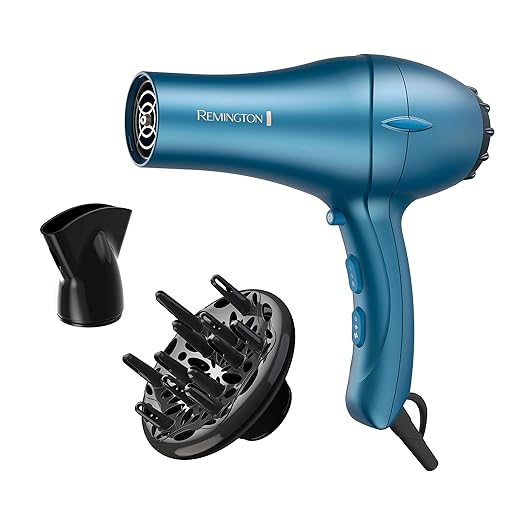
A performance-focused dryer that pairs powerful airflow with titanium-ceramic heating and a high-output ionic generator for smooth, salon-like results. It’s slightly heavier but quieter in operation and offers good styling versatility with included attachments.
Conair InfinitiPro Dryer
Remington D2042 Dryer
Conair InfinitiPro Dryer
Remington D2042 Dryer
Conair InfinitiPro Dryer
Remington D2042 Dryer
Conair vs. Remington: Which Hair Dryer Wins?
Product Specifications and Technologies — Titanium vs Ceramic Explained
Key specs — Conair INFINITI PRO
Key specs — Remington Pro D2042
Materials & what they do
How the two compare
Conair leans on ceramic + ionic balance for gentler, more even heat — better for fine, dry, or color-treated hair. Remington pairs titanium with ceramic and a higher-ion generator for faster, higher-heat styling with more smoothing power — better for thick, coarse, or stubbornly frizzy hair.
Feature Comparison
Performance in Real Use — Drying Time, Heat Control, and Hair Results
Drying speed by hair type
Temperature accuracy & cold shot
Conair uses rocker switches (3 heat/2 speed); settings are effective but less precise than digital controls. Remington’s toggles behave similarly but the unit’s faster heat-up gives more immediate power. Both have a true/cool-shot button that reliably locks style; cold-shot duration is standard — effective for setting curls but not a substitute for finishing sprays.
Frizz, smoothness & shine
Ionic tech on both reduces frizz. Remington’s spec of “90% more ions” and titanium’s stronger heat produce glossier, sleeker results, especially on frizz-prone hair. Conair’s ceramic infrared heat preserves moisture better, so it feels less drying on color-treated or fragile hair.
Styling control, airflow quality & noise
Concentrator = precise blowouts; diffuser = fuller natural texture. Conair’s AC motor delivers steady, strong airflow (good for volume and fast drying) but can be louder. Remington advertises a “hushed tone” and is noticeably quieter in use, with slightly more focused airflow for smoothing.
Overheating & durability notes
No widespread overheating reports. Conair’s removable filter and AC motor are built for longevity; Remington users occasionally report loose attachments over time. Overall: Remington = speed and smoothness; Conair = even heat and gentler finish.
Features, Attachments, Build Quality and Ergonomics
Attachments: diffuser and concentrator design
Conair supplies a standard diffuser and a concentrator sized for general blowouts — the diffuser bowl disperses airflow for volume and curl separation, while the concentrator creates a broader, even air column for smoother sections. Remington includes a narrow concentrator for precision smoothing plus a diffuser built to boost curl definition and texture. Narrow nozzles on Remington give tighter, straighter results on small sections; Conair’s wider concentrator is better for quicker, overall smoothing.
Build materials, fit-and-finish and weight
Conair uses ceramic infrared heating with a velvet-touch housing and rose-gold accents for a refined feel. Remington advertises titanium-ceramic elements and a satin finish; users note it’s slightly heavier. Both feel solid out of the box; Conair’s AC motor and removable lint filter suggest longer service life, while Remington’s attachments are reported to loosen occasionally.
Switch placement, ergonomics and controls
Both models use easily reached 3-heat/2-speed switches plus a cold-shot button. Conair’s rocker switches sit on the body for quick thumb access; Remington’s toggles are similarly practical but can be bulkier to operate with one hand. Remington’s “hushed tone” housing improves user comfort during longer styling.
Maintenance, cord and portability
Conair explicitly includes a removable lint filter for simple maintenance; Remington’s listing doesn’t specify one, so cleaning is limited to external vents and attachments. Remington is slightly heavier and less travel-friendly; Conair’s sleeker fit is more portable. Neither model claims a folding handle; check cord length and swivel when buying for salon use.
Price, Value, Pros & Cons, and Best Use Cases
Amazon pricing and value-for-money
Typical Amazon pricing (varies by sale and seller): Conair InfinitiPro commonly ranges from about $30–$70; Remington Pro D2042 typically sells around $40–$60 (many listings near $50). Expect 10–30% off during Prime Day, Black Friday, and seasonal promotions. Both offer strong value: Conair for airflow and service life (AC motor + removable filter), Remington for quieter operation and titanium-ceramic heating at a mid-range price.
Pros & Cons — Conair InfinitiPro
Pros & Cons — Remington Pro D2042
Best use cases / who should choose which
When in doubt: pick titanium for speed and high-heat styling; pick ceramic for gentler, even drying and long-term hair health.
Final Verdict
For heat-sensitive or fine hair, the Conair INFINITI PRO (ceramic) is the better, gentler choice. For speed, high heat and heavy-duty styling, the Remington Pro (titanium/ceramic) is the clear winner and my overall pick for performance.
Buy by price and hair type: choose Conair if you want even, lower-impact drying on delicate strands and a lower price; choose Remington if you need faster drying, stronger airflow and professional-level results on thick or coarse hair. Quick pick for most users: Remington Pro D2042 —best balance of power and results. Consider a diffuser if you enhance curls and volume today.



Hello! I’m Ava Wilson, a passionate advocate for healthy, beautiful hair. With years of experience in the hairstyling industry and a deep-rooted love for all things hair, I’ve made it my mission to share valuable insights and expert tips on nurturing and styling locks.
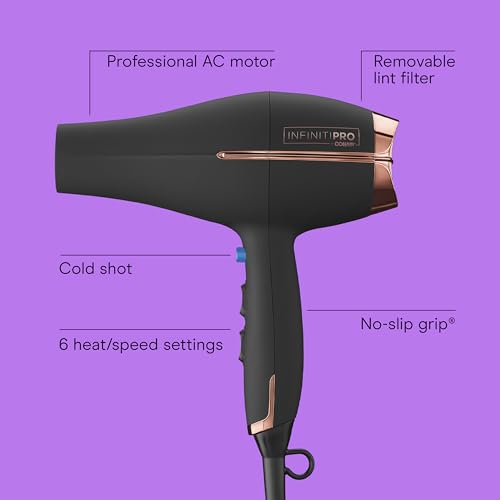
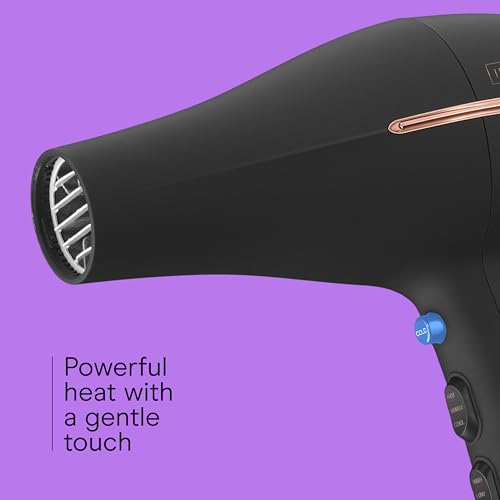
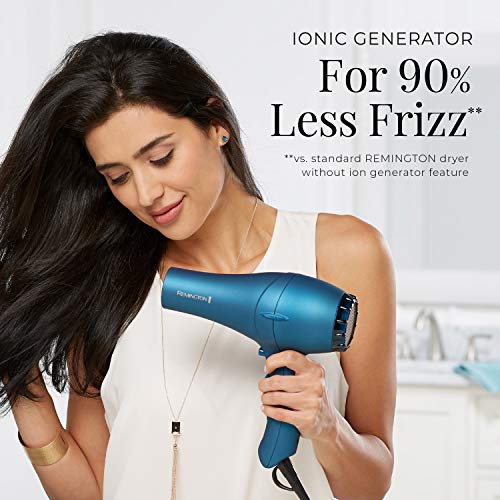
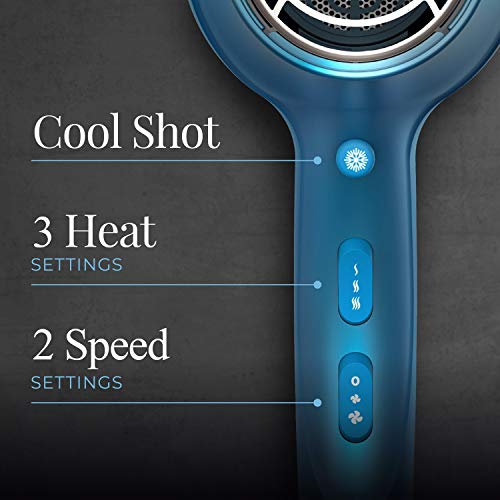
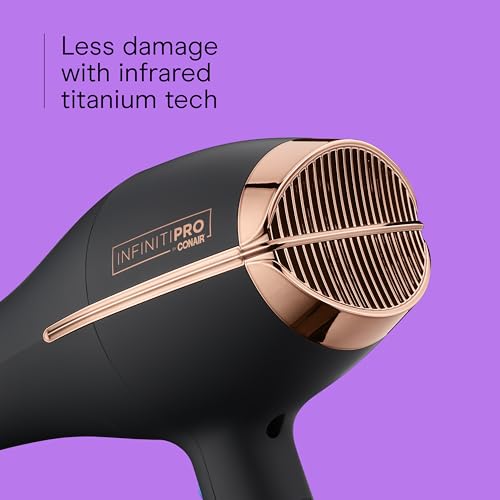
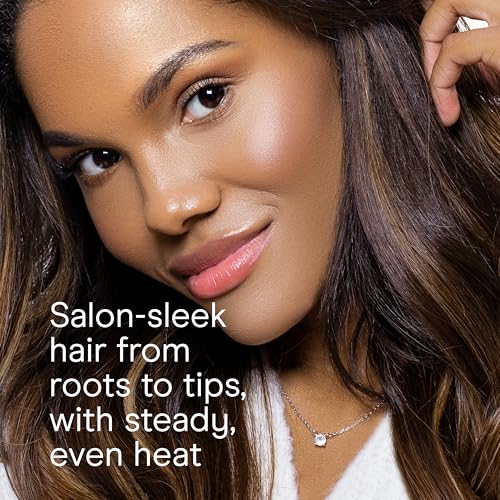
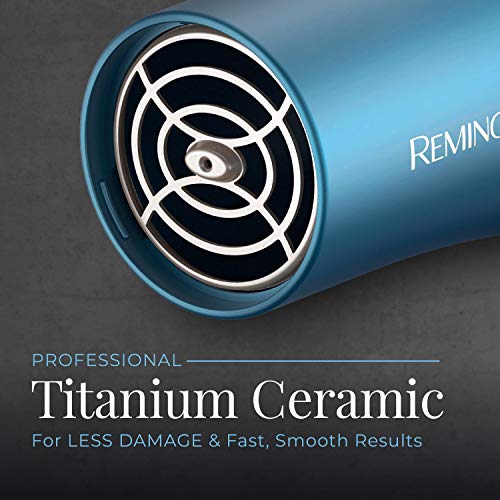
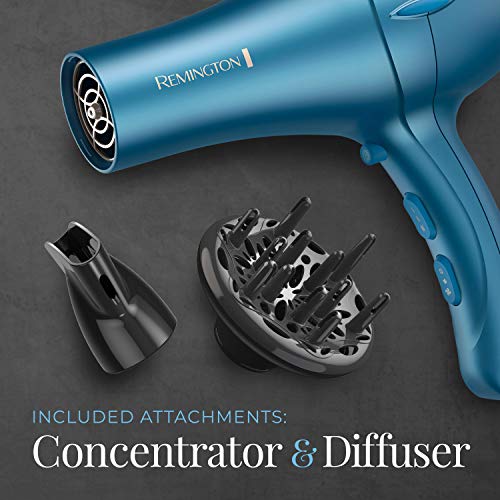
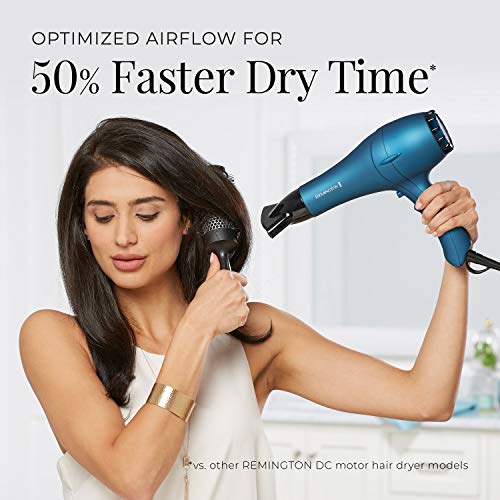
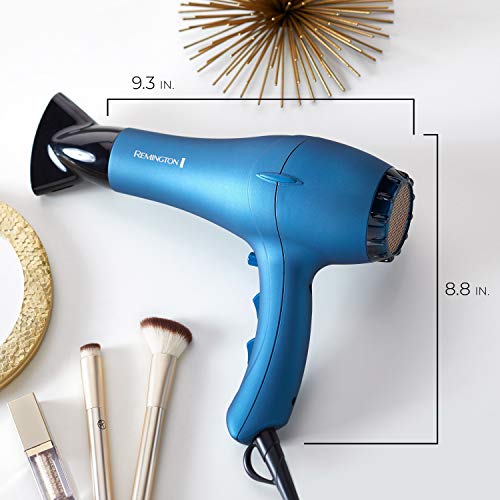



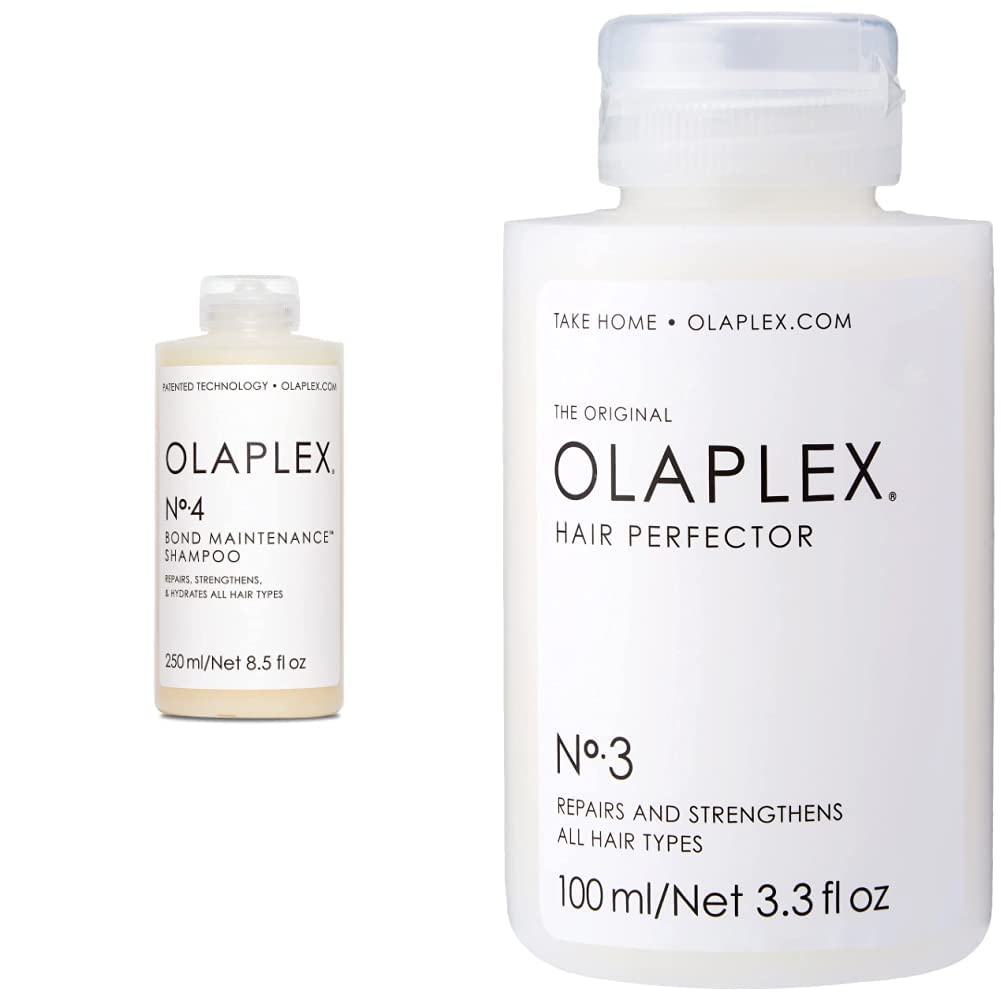
I’ve been using the Conair INFINITI PRO for a few months and honestly it’s been a game changer for my wavy hair.
The diffuser actually gives my waves shape without turning them into a frizz ball.
Ceramic heat feels gentler than my old dryer — less hot spots.
Not the lightest in the world but still comfy to hold for a blowout.
Would recommend if you want defined waves/curls without spending $100+ on a salon tool.
Totally agree — my waves look 100x better with the Conair diffuser. FWIW I use the lowest heat and longer drying time to avoid extra frizz.
Thanks for sharing, Maya — glad the diffuser is working for your waves! We found the Conair’s ceramic tech does help with even heat distribution, which explains the reduced frizz you noticed.
Did you notice any weird smell when it was new? Mine had a tiny chemical smell first use and I freaked out lol.
Weight and balance matter more than people say. The Remington felt a bit front-heavy to me, the controls weren’t as intuitive as Conair’s.
Conair felt balanced and lighter for longer styling sessions.
If you do long blowouts, try holding one in-store to see which arm can take it 😅
Anyone else wish they’d include a travel fold handle? I miss older compact models.
Agreed. I returned one dryer because my wrist hurt after 10 minutes. Go hold it!
Totally — ergonomics are underrated in reviews. Good tip to do the in-store feel test.
I bought the blue Remington because it matched my bathroom towels. Style first, functionality second 😅
But nah seriously, it actually works. My hair is less frizzy and dries pretty quick.
Ha — aesthetics matter! Glad it performs well for you too.
That’s a valid purchase reason 😂 If it performs + looks good, it’s a win.
I got the Conair because it’s black and matches my vanity. Works great tbh. Less frizz, less fuss 😎
Same — black appliances for the win. Also less dust-visible.
Glad it’s working well for you, Jacob! Color-matching is a totally valid purchase reason 😂
Been debating these two for weeks so I finally tested both back-to-back.
Long story short:
– Conair’s ceramic felt more even and I liked how my color-treated hair didn’t look fried.
– Remington’s titanium gave a sleeker finish but I had to use the cooler settings more often.
– Both have a diffuser and concentrator which is nice — no extra accessories needed.
– Price-wise Remington was a smidge cheaper where I bought it, but sales change everything.
If you flip between straightening and air-dried styles, pick the one you handle more often. For me that was Conair, but only by a hair.
Peter — good callout. Using the lowest heat or a heat protectant serum can help with winter static. Some people also find ionic settings help, though not all models advertise that feature.
Thanks for the detailed side-by-side, Sofia. Price and how you style most often are great deciding factors.
I had more static with the Remington at first, but using a leave-in conditioner cut it down.
Question: did either leave your hair static-y in winter? My last dryer turned me into a walking static shock.
Also, cotton towel dry first. If you start with sopping wet hair both will struggle and it ups static.
I went with the Remington Pro D2042 because of the titanium element — dries faster for me (thick hair).
It feels solid in the hand and I like the concentrator for straightening.
Downside: a bit noisier than my old dryer and it’s slightly heavier.
But performance-wise, titanium definitely heats up quicker than plain ceramic.
I have thick hair and the Remington cuts my dry time by like 30% compared to cheaper dryers. Noise is the trade-off.
Ethan, how long does it take to fully dry your hair? I’m thinking of switching from a 2000W to something like this.
If you care about noise, try using the lower speed with higher heat for a compromise. Works for me.
Good point about titanium heating faster. We noticed that too — it can speed up styling but be mindful of heat settings to avoid damage on fine hair.
Heads up if you have fine hair: Conair’s lower heat settings are a lifesaver. I worried the Remington would be too hot and thin my ends faster.
But if your hair is dense and coarse, Remington’s titanium will cut the time significantly.
Also, for curls: use Conair’s diffuser; it preserves shape much better for me.
Thanks — I’m thick-haired and need faster options. Sounds like Remington is my pick.
Confirmed — fine haired folks, don’t blast the titanium on high. You’ll see split ends sooner.
Also use heat protectant! Saved my highlights.
Great hair-type-specific advice, Priya. That’s exactly how we framed the recommendation.
Okay long post incoming because I tried both and here’s my messy brain:
– Conair: great for daily styling, the cold shot button helps set my blowout, ceramic felt kinder on the ends.
– Remington: faster heat-up and the titanium bits seem to smooth hair quicker, but I found myself using lower heat to avoid singeing my fragile ends.
– Attachments on both are basic but usable. The Remington’s concentrator seems a bit narrower which is nice for straightening.
Personal verdict: if you have fine or damaged hair, go Conair. If you have strong, thick hair and want speed, go Remington. YMMV!
This is the exact kind of comparison I needed, thanks! Saved me from buying the wrong one.
Great breakdown, Olivia. The narrower concentrator is indeed more precise for straight styles — thanks for pointing that out.
Value-wise, both are fine but Remington felt more ‘pro-looking’ with the titanium label. I worry about long-term durability though — my last Remington lasted 2 years.
Conair has been in my family for ages and those things are tanks.
So I’m leaning Conair for longevity even if it’s not as fast as the Remington.
Good point on longevity — build quality and warranty can matter more than peak performance for many buyers.
Warranty matters. Check return policies and whether filters are user-cleanable — that prolongs life.